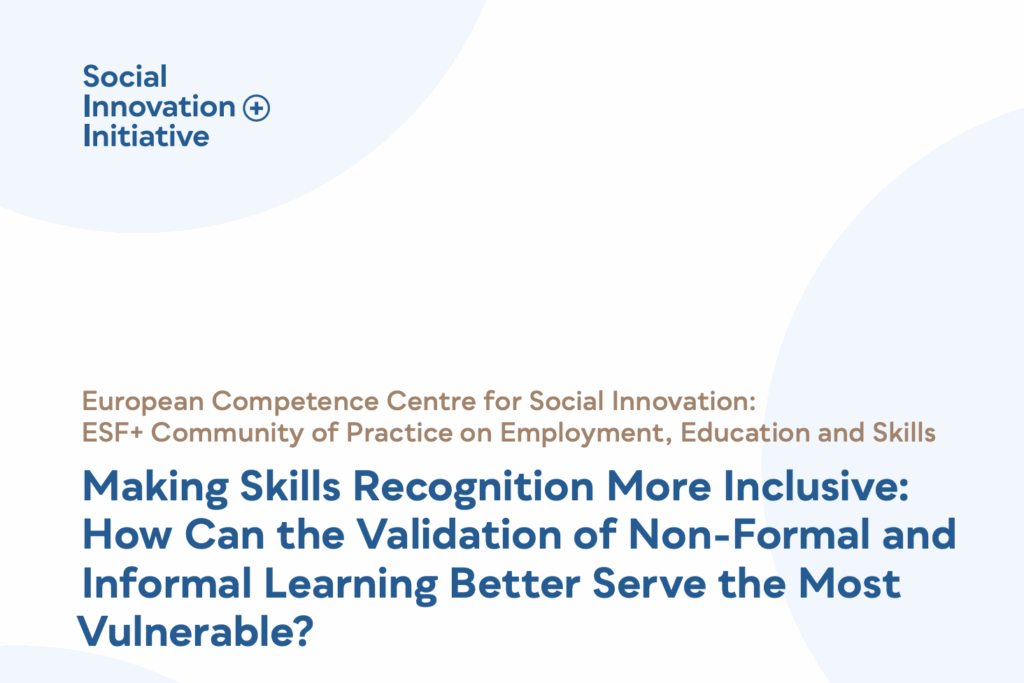Making Skills Recognition More Inclusive: How Can the Validation of Non-Formal and Informal Learning Better Serve the Most Vulnerable?
29/10/2025

On 28 October 2025, EARLALL joined the webinar “Making Skills Recognition More Inclusive: How Can the Validation of Non-Formal and Informal Learning Better Serve the Most Vulnerable?”. Organized by the Social Innovation Initiative, this event brought together ESF+ stakeholders, NGOs and Managing Authorities to explore how validation systems can better support inclusion across Europe.
Validation as a Tool for Inclusion
The event opened with Jörgen Markowitsch, Thematic Expert of the ESF+ Community of Practice on Employment, Education and Skills, who emphasized the crucial role of lifelong learning platforms such as LLLP (Lifelong learning platform) in addressing both skills shortages and the human dimension of current crises. Markowitsch underlined the need to make validation systems more accessible, especially for those furthest from the labour market.
Following this, Ernesto Villalba-García, Expert in VET Supporting Policies at CEDEFOP, delivered a keynote titled “Validation of Non-Formal and Informal Learning in Europe: A Tool for Inclusion or Exclusion?”, outlining how the understanding of non-formal and informal learning is essential for building inclusive education and training systems. Villalba-García highlighted that skills must evolve from invisible to visible, to recognize diverse forms of learning and ensuring that skills gained outside traditional systems are valued.
National Perspectives
Two breakout sessions provided insights from Germany and Portugal, encouraging participants in the webinar to discuss and exchange experiences. In the German session, participants explored how ValiKom has transitioned from a project into a national policy framework, now embedded in Germany’s Vocational Training Act. Marcus Flachmeyer from HeurekaNet, shared examples from the elderly care sector, demonstrating the validation of informally and non-formally skills support workforce. The session concluded with a discussion moderated by Jörg Markowitsch, focusing on integrating validation within broader vocational systems.
In the Portuguese session, Paula Guimarães, Assistant Professor at University of Lisbon, highlighted how validation of skills has become a cornerstone of lifelong learning in Portugal. Continued by Marco António Paz, Counselor at INOVINTER Qualifica Centre Lisbon, who shared practical insights from qualification centre. Their examples illustrated how to bridge the gap between adult education, labour market integration and social inclusion.
Looking Ahead: Strengthening Inclusive Validation
The webinar concluded with a shared understanding that validation systems must go beyond recognition to empower individuals. As part of its ongoing commitment, EARLALL continues to promote skills recognition as a driver of social inclusion and regional development, particularly for vulnerable groups.

